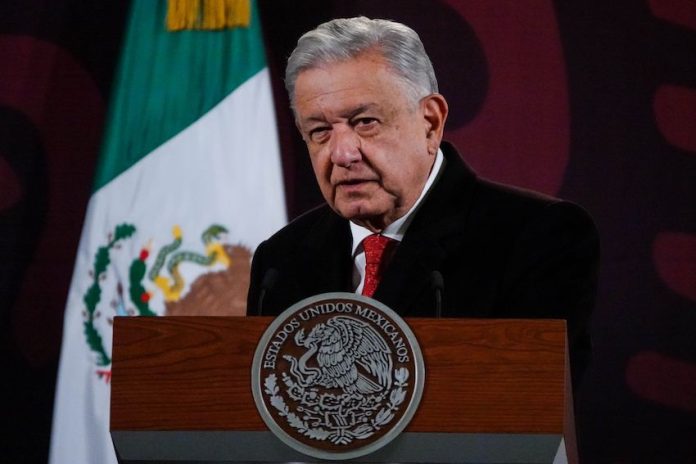President Andrés Manuel López Obrador on Wednesday rejected reports that his 2006 presidential campaign received millions of dollars in drug money, describing them as “completely false.”
ProPublica, Deutsche Welle and Insight Crime all published reports on Tuesday that said that people working for López Obrador’s campaign received between US $2 million and $4 million from drug traffickers affiliated with the Beltrán-Leyva Organization (BLO) and the Sinaloa Cartel, which at the time colluded in a criminal alliance called the Federation.
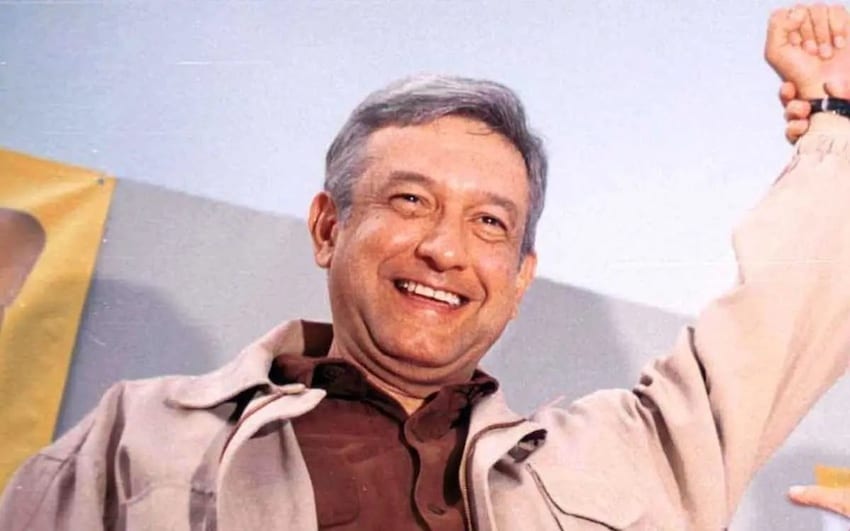
The three outlets received information about a Drug Enforcement Administration (DEA) investigation into the alleged funding of the campaign with drug money. The investigation was dropped years ago.
At his Tuesday morning press conference, AMLO said that the reports amounted to “libel” and accused the United States government of involvement in their publication.
He asserted that the press, not just in Mexico but around the world, is “very subservient to power.”
“In the case of the United States, the Department of State and [other government] agencies have a lot of influence in the management of the media,” López Obrador said.
He said there is no proof that his campaign received drug money, before denouncing the media outlets and journalists responsible for the articles as “despicable libelers.”
AMLO also asserted that the publication of the reports is related to the upcoming elections in the United States, but didn’t elaborate.
With the ProPublica, Deutsche Welle and Insight Crime articles projected onto a screen behind him, he remarked:
“It’s a campaign. It’s [in the] United States, it’s in Germany, it’s here. Where is the proof?”
Later in the press conference, López Obrador said his criticism wasn’t directed at the media outlets or journalists, but at the United States government “for allowing these immoral practices.”
“… How was this orchestrated? What? Didn’t [the U.S. government] agencies know about it?”
What do the reports say?
ProPublica
Did drug traffickers funnel millions of dollars to Mexican President López Obrador’s first campaign?
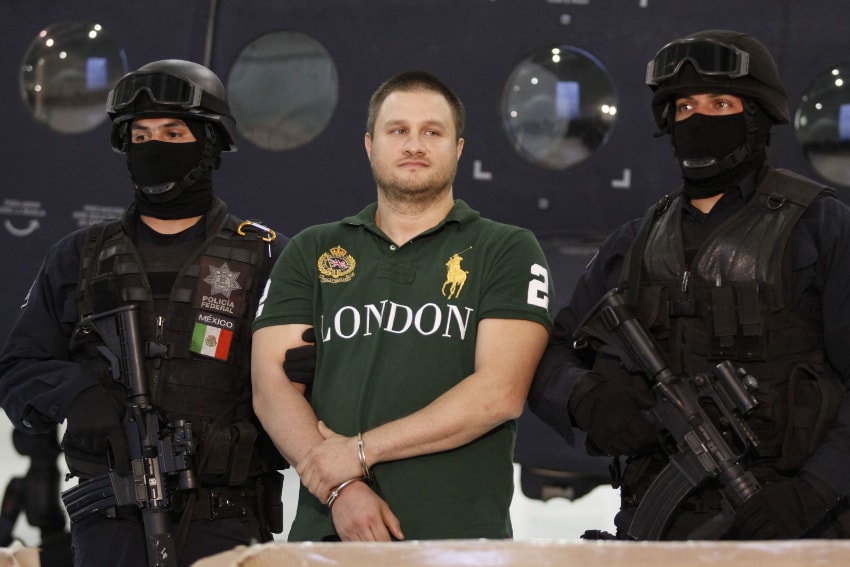
The New York-based nonprofit news organization reported that years before AMLO became president in 2018, “U.S. drug-enforcement agents uncovered what they believed was substantial evidence that major cocaine traffickers had funneled some $2 million to his first presidential campaign.”
“According to more than a dozen interviews with U.S. and Mexican officials and government documents reviewed by ProPublica, the money was provided to campaign aides in 2006 in return for a promise that a López Obrador administration would facilitate the traffickers’ criminal operations,” wrote journalist Tim Golden.
“The investigation did not establish whether López Obrador sanctioned or even knew of the traffickers’ reported donations,” he said.
ProPublica reported that the DEA was told that “in three deliveries” in 2006, “La Barbie’s organization” gave López Obrador’s campaign about $2 million in cash.
La Barbie is Texas-born Édgar Valdez Villareal, whose nickname is a nod to his blonde hair and fair skin.
ProPublica noted that Valdez – sentenced to 49 years in jail in 2018 – was “a major trafficker, working with a larger mafia run by the Beltrán Leyva brothers, who in turn were part of the alliance known as the Sinaloa Cartel.”
Deutsche Welle
El Cartel de Sinaloa financió la campaña de AMLO en 2006 (The Sinaloa Cartel funded AMLO’s 2006 campaign)
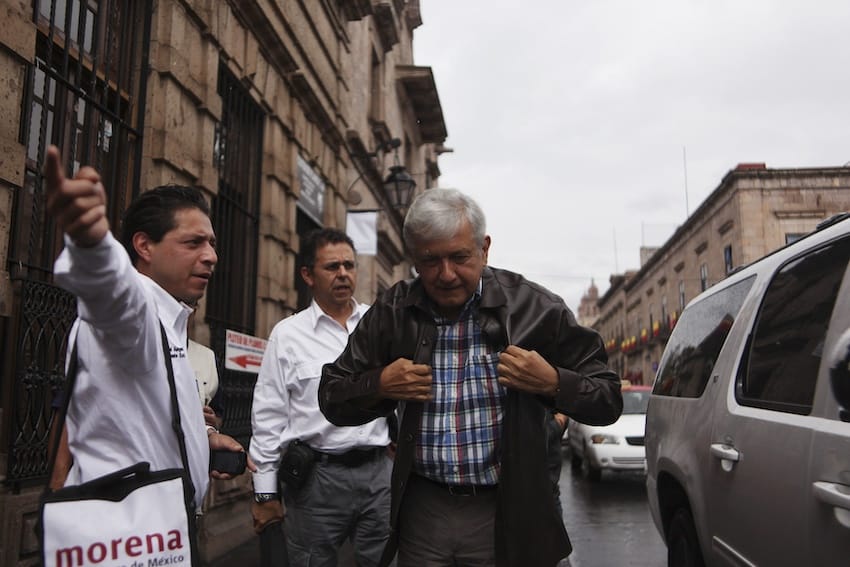
“An investigation carried out between 2010 and 2011 by the U.S. Attorney’s Office for the Southern District of New York and the DEA, secret until now, obtained solid evidence that the Sinaloa Cartel contributed between $2 million and $4 million to the campaign of Andrés Manuel López Obrador when he was a candidate for the presidency in 2006,” wrote Mexican journalist Anabel Hernández in Deutsche Welle, a German state-owned media organization.
In what is described as a “column” rather than a report, Hernández said that investigators obtained audio recordings in which “Sinaloa Cartel witnesses” and people in “AMLO’s close circle” confirm there was “illicit funding” of López Obrador’s 2006 campaign.
The article said that La Barbie was the main negotiator for the Sinaloa Cartel. López Obrador, “as the United States government found out,” spoke to Valdez on June 15, 2006 and thanked him for the financial support for his campaign, Hernández said.
She added that López Obrador told La Barbie that as president his aim was to reduce violence, and asked the trafficker for his assistance to that end.
AMLO ultimately lost the 2006 election by a narrow margin to Felipe Calderón, who promptly launched a militarized “war” against drug cartels.
Insight Crime
‘Operation Polanco’: How the DEA investigated AMLO’s 2006-presidential campaign
Insight Crime, a think tank and media organization focused on organized crime in the Americas, reported that U.S. investigators believed that representatives of the BLO, including La Barbie, “made a deal with the AMLO campaign” in late 2005.
The arrangement, wrote Insight Crime co-director Steven Dudley, was that “BLO would give millions of dollars to AMLO’s presidential campaign” and “in return, AMLO’s team promised to give the BLO first right of refusal on who would be attorney general, which, for the investigators, amounted to a free pass to traffic drugs.”
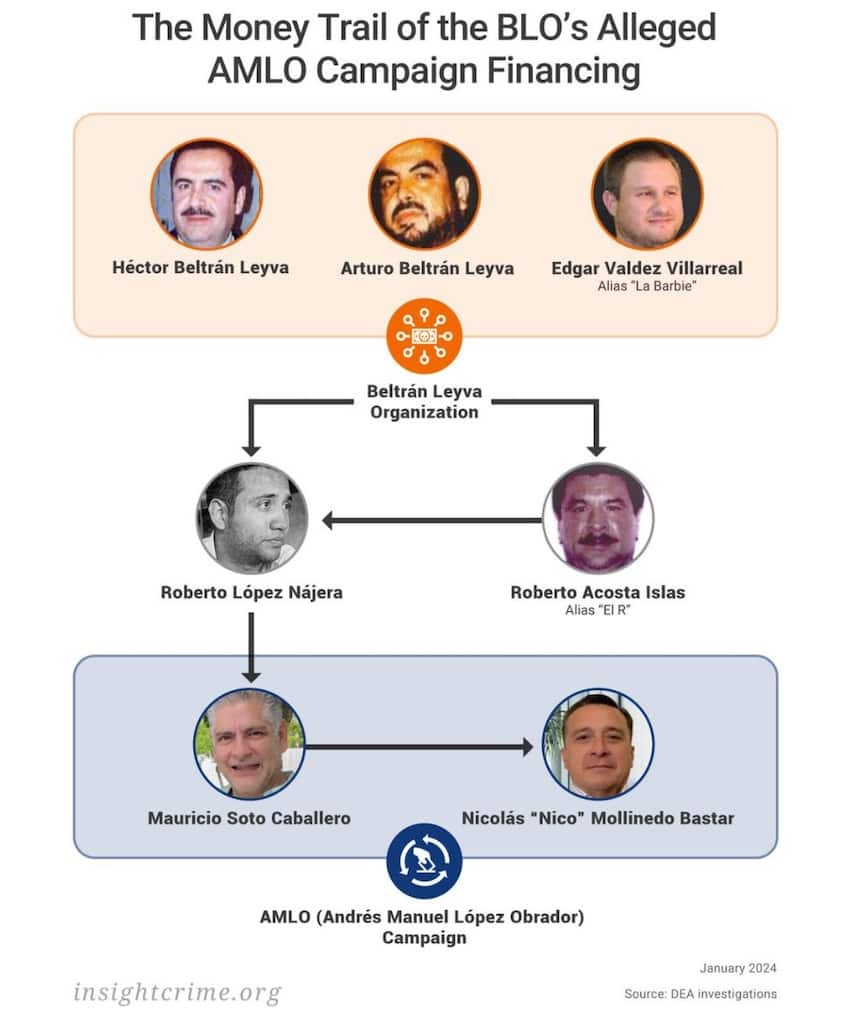
In 2006, Roberto López Nájera, a lawyer for La Barbie, gave Mauricio Soto Caballero, an apparent “political coordinator” for AMLO, “between $2 million and $3 million, which Soto later said he passed to the AMLO campaign,” Insight Crime reported.
“Investigators said that some of the money was also channeled through another alleged BLO operative named Roberto Acosta Islas, alias ‘R,’ who then moved that money through López to Soto, who said he passed it to the AMLO campaign.”
Three people were placed at the top of an Insight Crime infographic titled “The money trail of the BLO’s alleged AMLO campaign financing”: La Barbie and the brothers and cartel leaders Héctor Beltrán Leyva and Arturo Beltrán Leyva.
Insight Crime said its report was “based on more than a dozen interviews, including with several current and former law enforcement officials and diplomats with knowledge of the investigation.”
López Obrador denounced similar “slander” in 2023
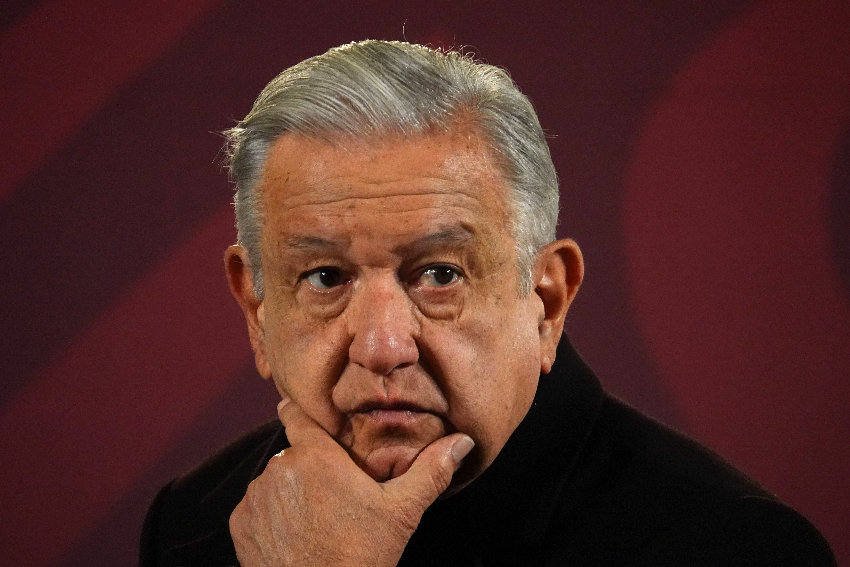
In New York in 2023 at the drug trafficking trial of Felipe Calderón’s security minister Genaro García Luna, a lawyer for García Luna, César de Castro, asked prosecution witness and former Sinaloa Cartel member Jesús “El Rey” Zambada whether he recalled telling U.S. authorities in 2013 that he delivered US $7 million to a Mexico City official to fund the 2006 presidential campaign of López Obrador, who was mayor of the capital between 2000 and 2005.
Zambada denied making such a declaration. “I couldn’t have said it because it isn’t true,” he said.
López Obrador said last February that he would file a lawsuit against de Castro for slandering him, but subsequently decided against the move. García Luna was convicted of collusion with the Sinaloa Cartel, but has not yet been sentenced.
A former DEA official predicts a deterioration in Mexico-US relations
Mike Vigil, former head of international operations for the DEA, told MVS Noticias that he read the ProPublica article, but “didn’t see any evidence” that López Obrador was aware of the alleged illicit funding arrangement or had the intention of receiving “hot money” from drug traffickers.
Indeed, ProPublica itself, as noted earlier, said it wasn’t established “whether López Obrador sanctioned or even knew of the traffickers’ reported donations.”
In contrast, Hernández’s column made a clear assertion that AMLO was aware of the arrangement.
Vigil told the Associated Press that the publication of the three articles on Tuesday will have an adverse affect on the relationship between Mexico and the United States and their cooperation to combat drug trafficking.
“It’s just terrible, it’s going to mean more drugs heading to the United States and more violence in Mexico. It’s worse than when [former defense minister Salvador] Cienfuegos was arrested” in the United States in 2020 on drug trafficking charges, he said.
(López Obrador claimed that the U.S. fabricated evidence against the ex-army chief, and following his arrest, Congress approved legislation that regulates the activities of foreign agents in Mexico, removes their diplomatic immunity and allows for their expulsion from the country. Under pressure from the Mexican government, Cienfuegos was returned to Mexico, where he was promptly cleared of involvement in drug trafficking.)
Vigil told AP that the reports published Tuesday constitute “a direct attack against” AMLO.
“Secondly, he views it as an impact on the presidential campaign or in the presidential elections that are coming up. Now, if we thought the relationships with Mexico were bad, they are going to go from worse to almost nonexistent,” he said.
Mexico and the United States have in fact been collaborating closely on the fight against fentanyl and other illicit drugs, and on other shared challenges.
U.S. Secretary of State Antony Blinken said in October that “more than ever before” in his 30 years of experience in foreign policy, “the United States and Mexico are working together as partners in common purpose.”
Mexico News Daily
